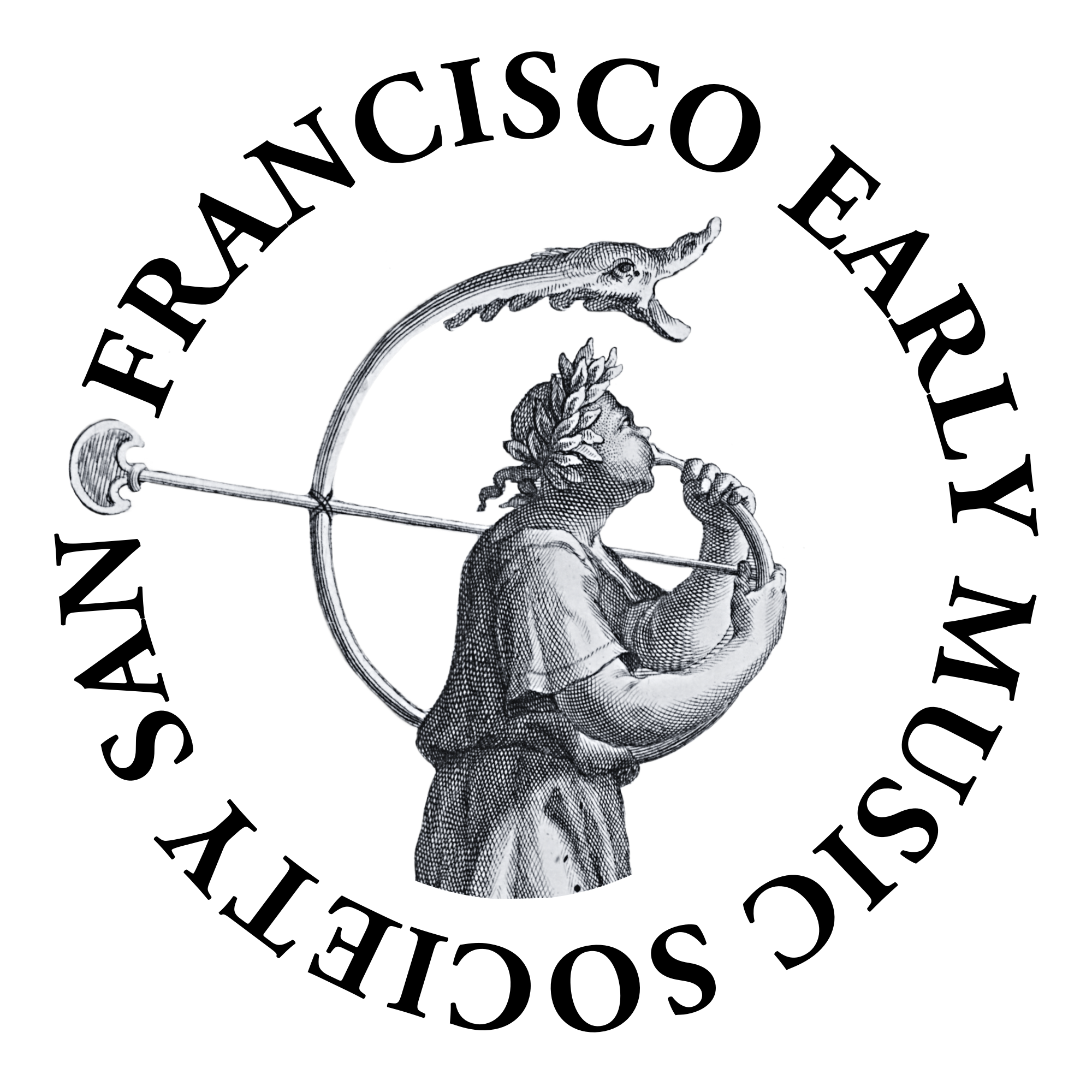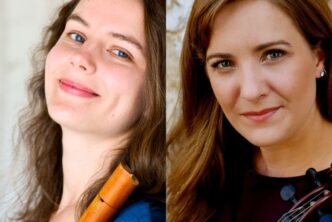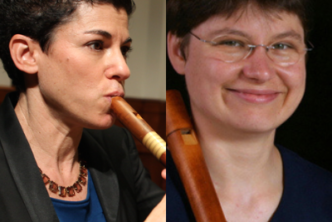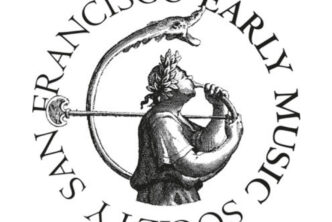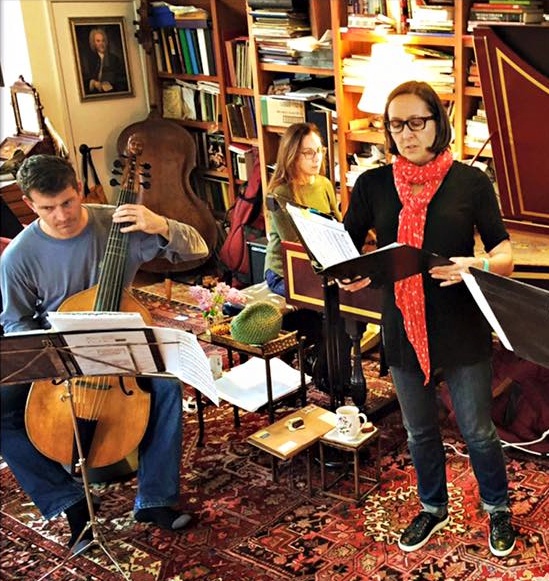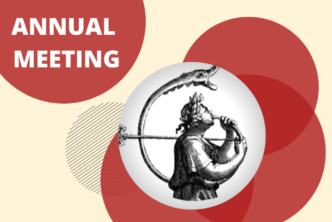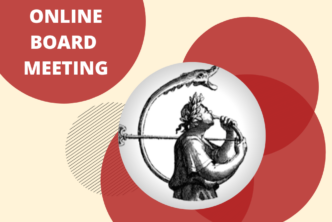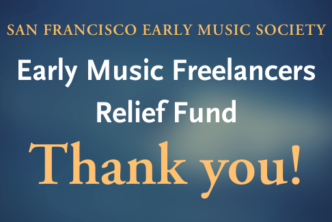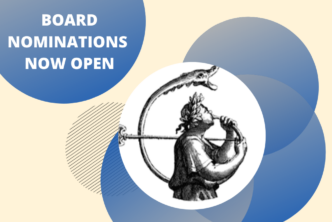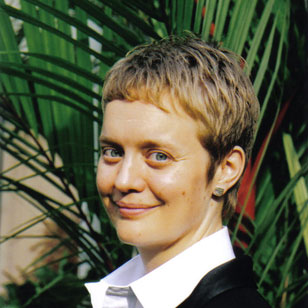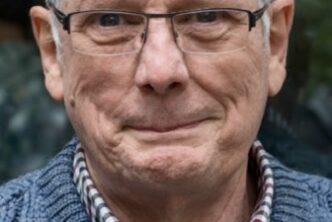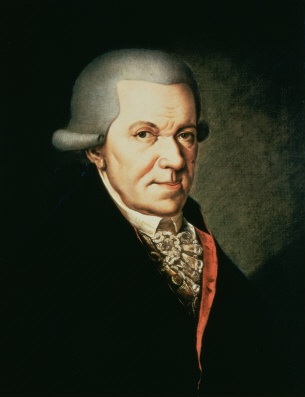
For the final concert of their 2013–2014 season, the California Bach Society, under the direction of Paul Flight, presents “Haydn and Mozart Rediscovered,” featuring charming and moving choral works of Wolfgang Amadeus Mozart and of both Johann Michael and Franz Josef Haydn. The New Esterházy String Quartet, with Farley Pearce (cello) and soloists Rita Lilly (soprano) and Gabriela Solis (alto), joins the thirty-voice chamber chorus for this concert on the weekend of May 2–4, 2014.
Mozart’s Missa Brevis in F Major (K. 192) is a work of Mozart’s youth (written when he was eighteen), yet it shows his precocious, fully developed mastery of musical styles, especially his skill in counterpoint. It is shorter than his large-scale Masses, achieved by through-composing the Gloria and Credo rather than breaking out sections into separate movements—hence “missa brevis,” of which Mozart wrote several. Yet, this Mass is fully composed, with lyrical solos, duets, trios, and quartets interwoven into the overall choral texture. The Credo is a striking movement: Mozart uses a four-note theme from an old plainchant that dates back at least as far as the Missa Pange Lingua of Josquin des Prez. This four-note theme shows up in several more of Mozart’s compositions, in an early symphony and, most notably, in a much later work—the final movement of his Jupiter symphony, with its spectacular five-subject fugal coda.
An additional early work of Mozart, his Misericordias Domini (K. 222), was composed at the request of the Elector of Munich in 1775. It is richly contrapuntal and demonstrates Mozart’s uncanny ability to produce sophisticated compositions almost at a moment’s notice. Mozart himself described the circumstances of its composition in a letter to Padre Giambattista Martini of Bologna: “A few days before my departure the Elector expressed a desire to hear some of my contrapuntal compositions. I was therefore obliged to write this motet in a great hurry, in order to have time to have the score copied for his Highness and to have the parts written out and thus enable it to be performed during the Offertory at High Mass on the following Sunday.” Padre Martini replied, “I find in it all that is required by modern music: good harmony, mature modulations, a moderate pace in the violins, a natural connection of the parts and good taste.”
Johann Michael Haydn is less famous in modern times that his older brother, Franz Joseph Haydn, yet he was an admired and prolific composer in his own era. He worked in Salzburg as court Konzertmeister for a number of years, including those of Mozart’s childhood and early youth, and his music may have had a profound effect on the young genius. Among his students were Carl Maria von Weber and Anton Diabelli. Michael Haydn was an extremely versatile composer, who wrote in both the stile antico and in more modern styles. He wrote a significant amount of sacred music. During this time, the Catholic Church, seeing what it believed to be abuses of sacred music, especially the infiltration of more operatic styles, issued edicts against the use of instrumental music and florid solos in liturgical music. Michael Haydn’s sacred compositions follow those guidelines. For this concert, Dr. Flight has selected Ave, Regina Caelorum, a motet for double choir, which exemplifies this reformed style. The stile antico looks backwards stylistically to composers such as Palestrina, although it does not imitate those composers literally. The second Michael Haydn motet on the program is Christus Factus Est; while neither florid nor accompanied by instruments (thus adhering to Church guidelines), it is a moving piece in the more modern Classical style, foreshadowing Anton Bruckner’s dramatic setting of the same text written in 1884, more than a hundred years later.
Franz Joseph Haydn is the composer who, more than any other, represents the aims and achievements of the Classical era. His influence on later composers—including Beethoven, Schubert, and even Brahms—is well recognized. The choral works in this concert are a rich representation of his output, both sacred and secular, that traverses many moods and states of mind.
His Salve Regina in g minor is set for chorus, soloists, strings, and organ. The choruses and the solos feature expressive, brooding, unornamented vocal lines. The piece is divided into several movements, which gives it an almost symphonic feel. At twenty minutes in length, it is a substantial composition.
Haydn’s part songs, for three or four voices and piano, are some of his last compositions. As the most famous and sought-after living composer in Europe at this point in his life, he complained that “my duties increase as my years increase.” Yet, these songs were written apparently for his own pleasure and not to fulfill an outside commission. A writer on the AllMusic Blog commented: “Indeed, some of them seem to have a very personal quality that is especially remarkable in view of the essentially entertaining nature of the part song as a genre.” Abendlied zu Gott (Evening Song to God) is very personal in its religious feeling. Der Augenblick (The Moment) addresses the demands and frustrations of love. The comic drinking song Die Beredsamkeit (Eloquence) is very characteristic of Haydn’s sense of humor, as he turns his mastery of counterpoint to comic ends. This humor is also evident in Die Harmonie in der Ehe (a treatise on what is required for a harmonious marriage). Der Greis (The Old Man) is a bittersweet and personal observation of his aging; yet at the end, he thanks Heaven that his life’s path has been a harmonious song.
Haydn stopped composing in 1803, after which he prefaced his correspondence with a little musical quotation from Der Greis: “Hin ist alle meine Kraft; alt und schwach bin ich” (Gone is all my strength; old and weak am I).
Performances are Friday, May 2, 8:00 p.m., at St. Mark’s Lutheran Church, 1111 O’ Farrell St. (at Franklin), San Francisco; Saturday, May 3, 8:00 p.m., at All Saints’ Episcopal Church, 555 Waverley (at Hamilton), Palo Alto; and Sunday, May 4, 4:00 p.m., at St. Mark’s Episcopal Church, 2300 Bancroft Way (at Ellsworth), Berkeley. Doors open 30 minutes prior to each performance. Advance purchase tickets: General $25; Senior $18; Under 30/Student $10. Tickets purchased at the door: General $30; Senior $22; Under 30/Student $10. For information: (650) 485-1097; www.calbach.org; info@calbach.org.
SFEMS members receive a $5 discount when using promotion code “SFEMS” at www.calbach.org/tickets.pl. Tickets can be purchased by phone at 650-485-1097 or online at www.calbach.org/tickets.pl.

